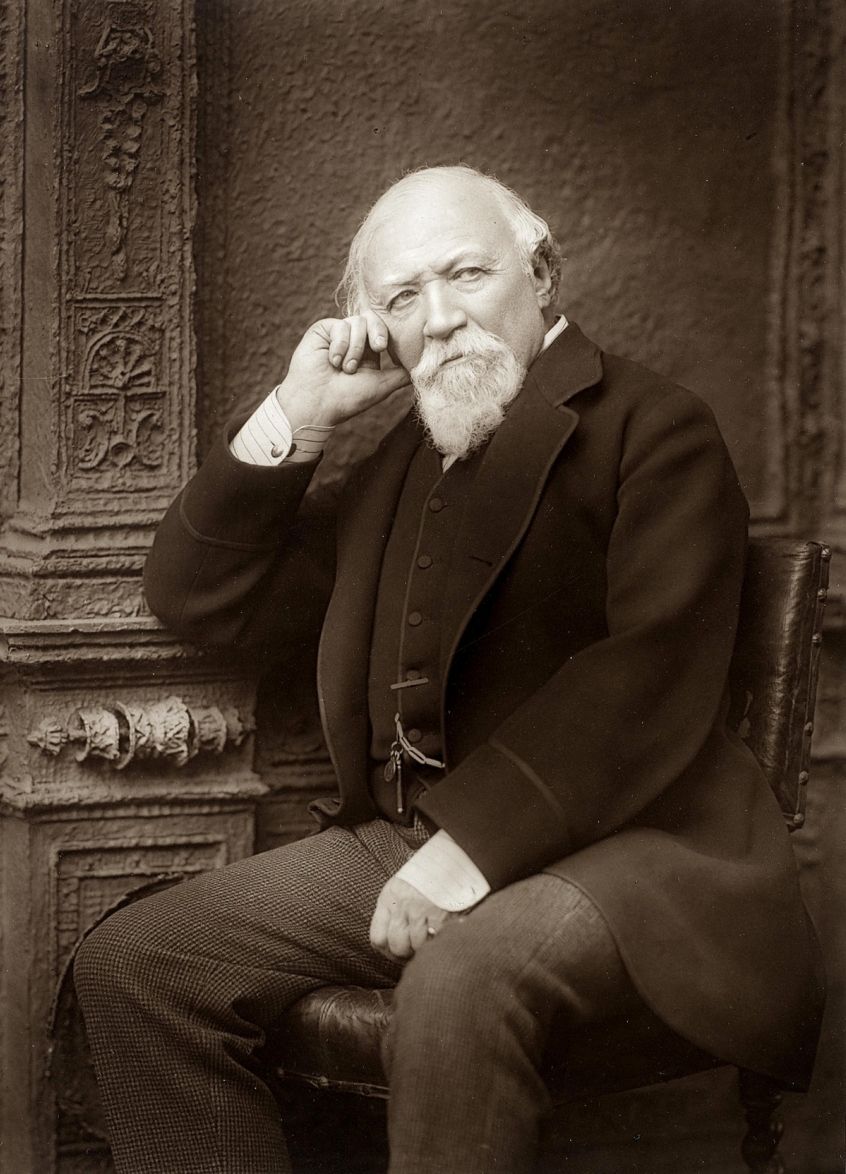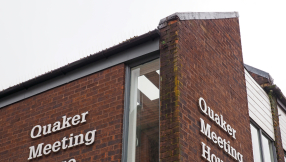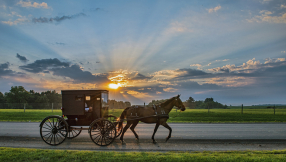Abraham ibn Ezra (1089-1164) was a great Jewish poet, philosopher and Bible commentator. He was born in Tudela, Navarra, northern Spain.
Ibn Ezra travelled around Spain, which was gradually regaining its Christian heritage from Islam, and also visited the important Jewish centres in northern Africa, especially Kairouwan, Tunisia (from which we get the word 'caravan', meaning 'military outpost' and 'resting place').

In 1139, this famous Hebrew poet (the first to introduce humour into Hebrew verse) upped and left Spain.
Fanatical Muslim Almohade tribes were invading from Africa; ibn Ezra's son Isaac had converted to Islam; he felt down and dejected; and he wanted to do something with the rest of his life.
He wanted to leave to posterity his Commentary on the Torah, the first in Hebrew to innovate with the latest grammatical, scientific and philosophical discoveries.
His thoughts were now of global mission: bringing the good news of Hebrew scholarship to the 'ignorant' Ashkenazi heartlands of Italy, Provence, France and England.
Ibn Ezra was however murdered in 1164 by 'anarchic English hordes' on their way to the Crusades.
This was just before the 1190 York massacre, England's worst pogrom. It was the era of Henry II and Thomas à Beckett (1118-1170), of blood libels and desecration of the host libels, which started in 1144 with the false myth of Jews killing little William of Norwich.
English Jews dated from Roman times (with more arriving in 1066). They were chattels of the King who permitted them only to act as money-lenders (hypocritically forbidden in Church law).
That is the England that ibn Ezra knew.
Seven centuries later Robert Browning (1812-1889), a Victorian poet celebrated for the rhythmic brilliance of The Pied Piper of Hamelin and How they brought the good news from Ghent to Aix, wrote the immortal lines of expatriates everywhere: 'O, To be in England Now that April's there' and 'God's in his heaven – All's right with the world.'
But was this correct? Was God in his heaven and was all right with the world? Browning was also a Hebrew scholar with a passion for justice. Like many other Victorian poets he travelled to Italy and stayed for a time in the northern town of Lucca, where he founded the English Church.
And this is where Robert Browning 'met' Abraham ibn Ezra. In 1145 ibn Ezra also lived in Lucca, where he wrote hisCommentary on the Torah. 12<sup>th-century Lucca was no haven for Jews like ibn Ezra:
'The alleys of the Jewish quarter ... taught us the oppressive influence of fear, the intensity of the straits of hatred and the aggression of the dominant religion, bent on destroying us'.
In Italy Browning was aware of the indigenous ghetto Jews (also dating from Roman times) forced by the Church to attend an annual Easter sermon. Browning's poem Holy-Cross Day (1851) captures the atmosphere.
Browning describes the humiliation of the Jews of Rome at the hands of the hypocritical Bishop, but adds that one day the same God who was in his Heaven will listen to the 12<sup>th-century Abraham ibn Ezra:
'For Rabbi Ben Ezra, the night he died, Called sons and sons' sons to his side, And spoke, 'This world has been harsh and strange, Something is wrong: there needeth a change. But what, or where? At the last or first? In one point only we sinned, at worst. The Lord will have mercy on Jacob yet, And again in his border see Israel set. When Judah beholds Jerusalem, the stranger-seed shall be joined to them. To Jacob's House shall the Gentiles dance, So the Prophet saith and his sons believe. Aye, the children of the chosen race Shall carry and bring them to their place.'
As we now know, in reality ibn Ezra died alone at the hands of a frenzied mob in a forest north of London.
After his wife Elizabeth died in 1861, Browning returned to London with their son and in 1864 wrote another poem about ibn Ezra, entitled Rabbi Ben Ezra.
This poem start 'Grow old along with me, The best is yet to be.'
It is an appreciation of what Judaism has to offer and foretells how this tiny religion of 15 million people will eventually demonstrate to the rest of the world how to live a good life.
In 1980 John Lennon recorded Browning's poem, Grow Old Along with Me to be played at weddings. It was to be his last song.
The song appeared posthumously in 1984 in the album Milk and Honey.
And in 2008, despite death threats, John's colleague Paul McCartney visited the State of Israel and sang in Tel Aviv, where he publicly acknowledged the help he had received from Jews throughout his life.
Dr Irene Lancaster is chair of the Broughton Park Dialogue Group in Manchester and an author who has pioneered the teaching of Hebrew and Jewish Studies at a number of universities in the UK. Her book on ibn Ezra and Robert Browning, Deconstructing the Bible, Routledge Book of the Month, was written in the Penny Lane area of Liverpool









